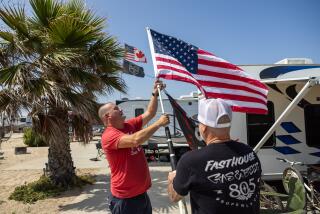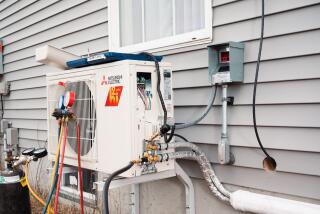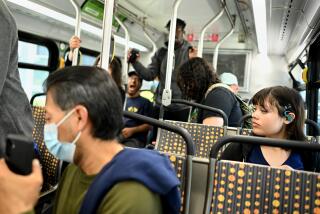Driving tips that can help you guzzle less gasoline
- Share via
Brett Johnson is meticulous about his car. It’s not about looks or handling, mind you. It’s about mileage.
The Arlington, Va.-based economist has discovered that he can skip a fill-up or two every month if he’s just careful about a handful of things, like keeping the car tuned and the tires properly inflated.
Environmentalists say that’s good for the planet because he’s burning less gasoline, which cuts pollution. But Johnson maintains that it’s all about money.
“When I talk about this with my wife, she says we need to do it for the environment,” Johnson said. “That’s fine to make that argument, but I am doing this because it’s good for me. I have better things to do with my money than spend it on gas.”
In this era of $3-a-gallon gasoline, experts say it’s worth following Johnson’s example. He can save an easy $50 to $100 a month by being careful about how he drives.
And Johnson’s strategy doesn’t involve anything costly like getting a more fuel-efficient car. Almost all of his actions have other money-saving benefits too.
For instance:
* Slow down. Gas mileage decreases rapidly at speeds faster than 60 mph, according to the Alliance to Save Energy, a Washington-based environmental lobbying group. As a general rule of thumb, each 5 mph you exceed that limit costs about 20 cents in gas per hour, assuming a $3 gallon, the group says.
The exact savings can vary a lot, however, said Robert Gibson, a research associate at the University of Tennessee, which hosts www.fueleconomy.gov for the Energy Department.
The reason is that aerodynamic drag cuts fuel efficiency at high speeds. A boxy sport utility vehicle is more affected by drag -- essentially caused by pushing air out of the way of the automobile -- than a sleeker sports car such as a Corvette.
Even a Corvette’s mileage will benefit, Gibson said, but not as much. The official Energy Department estimate is that cars will be 7% to 23% more fuel efficient at slower highway speeds.
* Use the cruise. There’s no hard estimate of how much gas this saves, but Energy Department engineers maintain that flipping on the cruise control to keep a constant speed improves mileage at least incrementally.
Johnson says he also does it to avoid tickets.
* Mellow out. What burns the most gasoline? It’s building up speed after being at a complete stop. The faster you make the car move, the more energy it takes, Gibson said.
Starting up slowly and giving yourself plenty of time to come to a stop can be as much as 33% more fuel efficient than “aggressive” driving, in which you race to stop and accelerate quickly.
* Timing is everything. One of the best ways to avoid lots of stop-and-go driving is to avoid traffic. Although that’s not always possible, Johnson says he attempts to avoid rush hours by leaving a little earlier or later than the rest of the crowd. That can knock 15 minutes off his 45-minute commute, he says.
* Tune it up. Once every three or four months, Johnson brings his car in for a tune-up and oil change. It costs him about $40 each time, but he figures it pays in both gas savings and by extending the life of his car.
“I figure every extra month that I can drive this car saves me $299 on lease payments,” he said.
The Energy Department says it also saves gas, making the car 4% to 14% more fuel efficient.
* Unload the trunk. Each additional 100 pounds carried in a car costs 1% to 2% in fuel efficiency, according to the Energy Department.
* Watch the tires. Underinflated tires can drop gas mileage by about 3%. And properly inflated tires are safer and last longer, Gibson said.
* Skip the drive-through. You get zero miles per gallon while idling. Park and get out.
* Combine trips. Not only do you avoid back-and-forth driving by combining all your Saturday errands into one trip, but cars are also more fuel efficient when they’re warmed up, Gibson said.
“It’s mostly common sense,” Johnson said. “But all these little things save money and time. If what’s good for me is also good for the environment, that’s an added benefit.”
--
Kathy M. Kristof welcomes your comments, but regrets that she cannot respond to every question. Write to Personal Finance, Business Section, Los Angeles Times, 202 W. 1st St., Los Angeles, CA 90012, or e-mail kathy.kristof@latimes.com. For previous columns, visit latimes .com/kristof.






